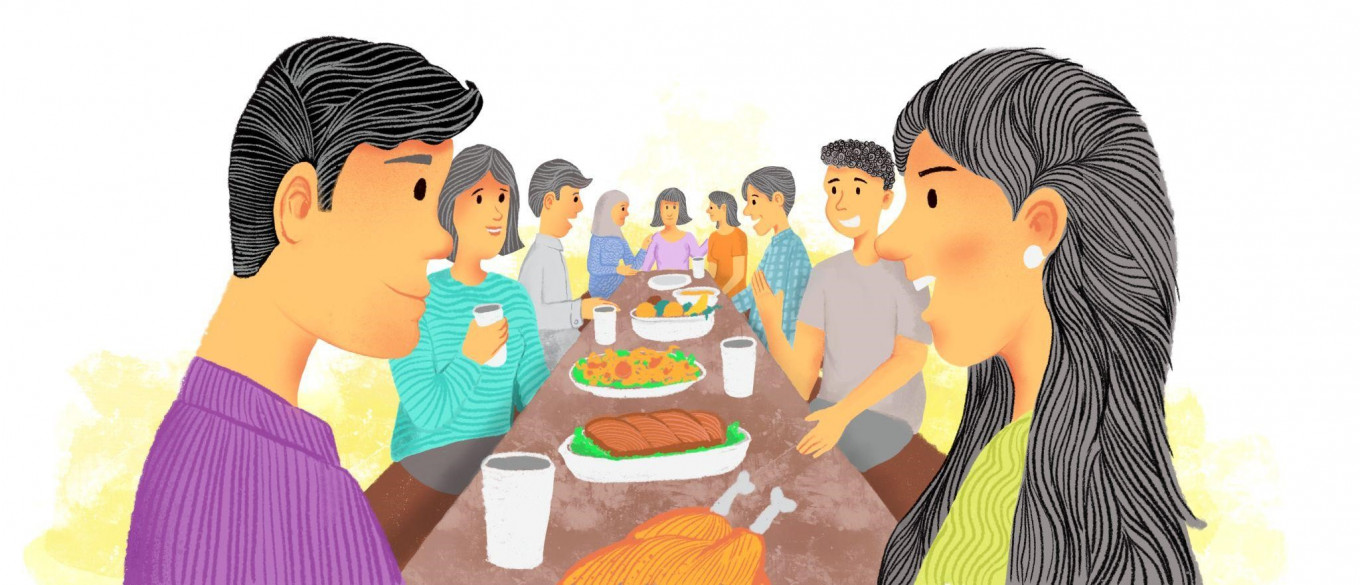The ‘bukber’ tradition: Holy rites, warmth and unwanted questions
Ramadan brings the warmth of bukber, or breaking the fast together with family and friends, offering both newfound perspectives and unexpected discussions.
Change Size
 (Courtesy of The Jakarta Post)
(Courtesy of The Jakarta Post)
I
n the days leading up to Ramadan in this better part of the post-pandemic period, I found myself both looking forward to and feeling apprehensive about buka bersama or bukber, those often cherished but sometimes bothersome soirees to break the fast together with family and friends.
Over the coming month, as the sun dips below the horizon to signal the end of each fasting day, the air will become thick with the joyous chatter of reunions everywhere.
Inscribed last year on UNESCO’s Representative List of the Intangible Cultural Heritage of Humanity, iftar, also known as eftari, iftar or iftor in practicing countries and more commonly as bukber in Indonesia, takes the form of gatherings or meals that serve as a cornerstone for strengthening familial and communal ties.
For those who have moved away from home for work, sharing the iftar ritual with friends is something to look forward to.
“Being so far from home, breaking the fast during Ramadan feels like a thrilling escapade after a day of fasting for me. Impromptu bukber are quite common, usually with colleagues after leaving the office,” says Indah Wulansari, a 30-year-old Surabaya native who works in Jakarta.
“In my perspective, for people my age, the significance of bukber varies greatly depending on the company. I lean toward breaking the fast with [members of] my closest circle rather than elaborate reunions. It's all about finding comfort in the familiar, creating an atmosphere that feels just right,” she explains.
It’s the same for those who have moved to other countries, many of whom don’t notice their soleness until the holy month approaches, thrusting them into the uncharted territory of observing Ramadan alone for the first time.

















